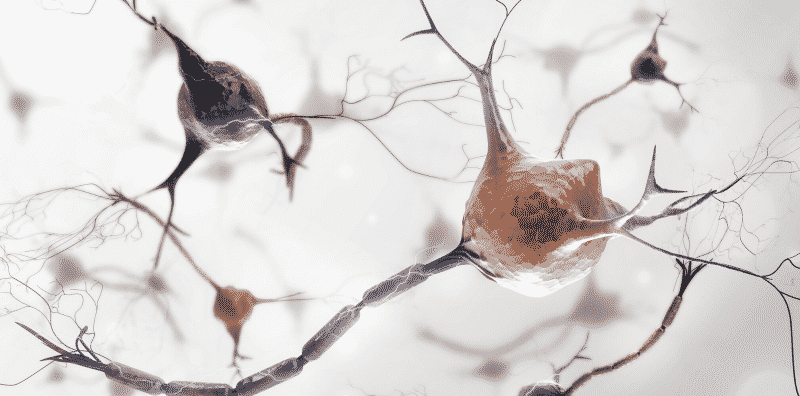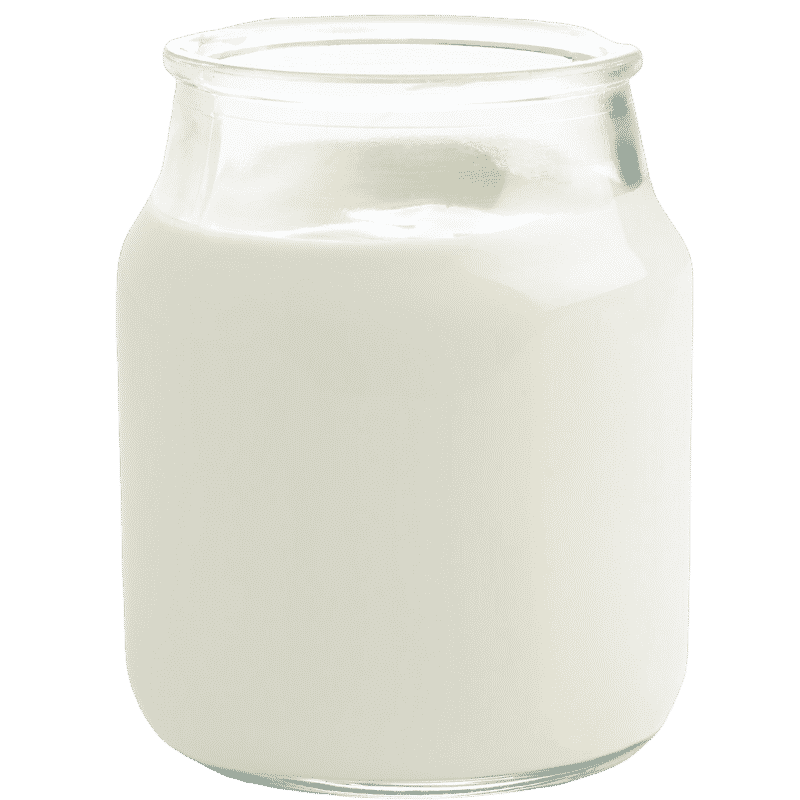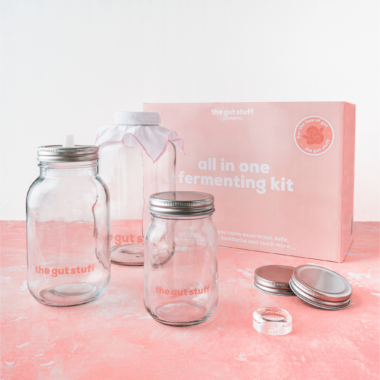
pre and probiotics
These kinda sound the same, but they’re different, and you need BOTH for a healthy gut. We take you through why and how you can increase your intake.

our top takeaways
simple swap
Swap plain yogurt for live yogurt (look on the back for cultures) or kefir.
myth bust
“I eat yogurt, that’s all the fermented food I need”. False. Different yogurts, including non-dairy ones, contain different live cultures, so read the label and mix it up to make sure you’re getting diversity.
These can be incredibly confusing given their names are pretty similar but pre and probiotics are actually very different things. You need a good mix of both to keep your gut happy.
probiotics
a probiotic is a live microorganism that when eaten/drunk in adequate amounts confer a health benefit on the host (you!).
Probiotics can be in food form or in supplement form but not all probiotics are created equal – different strains have different effects, and some might have no effect at all, it all depends on the individual and if there is a particular issue at hand. For example, one brand of Greek yogurt contains live cultures: Bifidobacterium, lactobacillus Bulgaricus, Streptococus, whereas another contains: Lactobacillus Bulgaricus, S Thermophilus, L Acidophilus, Bifidus, L. Casdei. Diversity is key for gut health!
Foods containing probiotics (live bacteria) include live yogurt, kimchi, sauerkraut, kefir, miso and kombucha. Make sure you check on the back of the label to see if the product has been pasteurised (for shelf life and to get rid of potentially harmful bacteria) that bacteria has been added back in. Just like yogurt, try getting a mix of different types across the course of your week (we like to experiment and make our own sauerkraut as it’s cheap and super easy).
probiotic supplements
It’s very difficult to decipher fact Vs expensive marketing jargon to work out which products are efficacious. We’d advise focusing on the different STRAINS of bacteria in a product and research a bit about what that particular strain is good for. Science is rapidly evolving around the use of specific strains for certain conditions. There is no one size fits all.
Steer clear of anything promising to “cure” or “treat” – probiotics are not medicines, not yet at least.
prebiotics
prebiotics are a specific type of fibre and are the food for the good bacteria.
Great sources of prebiotic food include: onion, garlic, leeks, chicory, bananas (the unripened green ones that nobody wants), asparagus, artichokes, olives, plums, apples, and in grains like bran and in nuts like almonds.
i wanna read more on this stuff…
disclaimer: The information on this website is provided as an information resource only and is not to be used or relied on for any diagnostic, treatment or medical purpose. All health issues should be discussed with your GP and/or other qualified medical professional.





